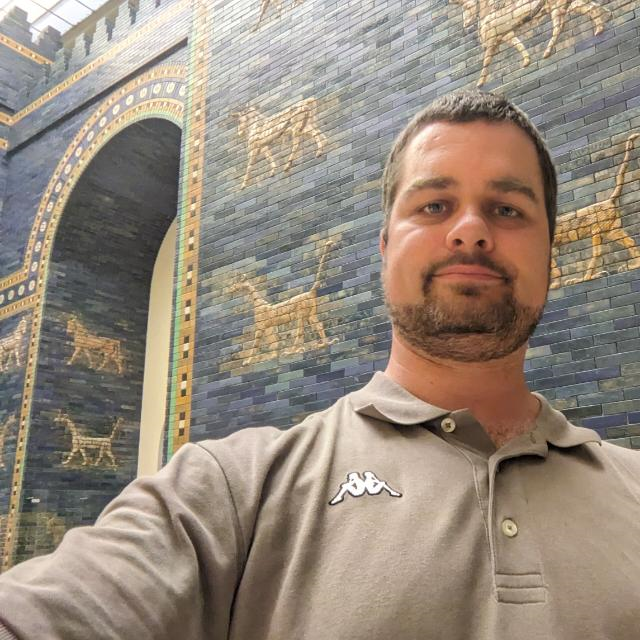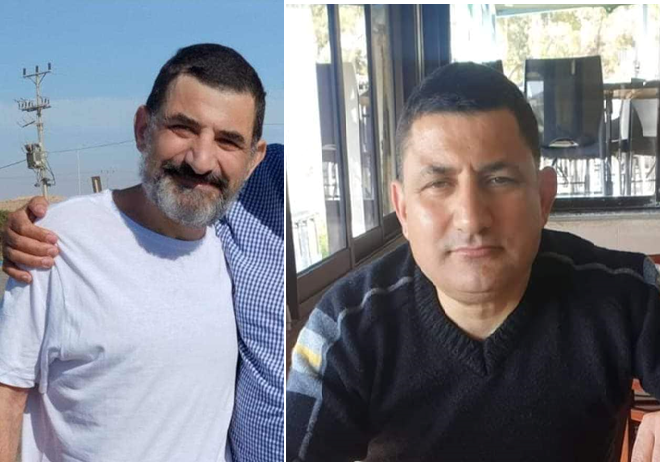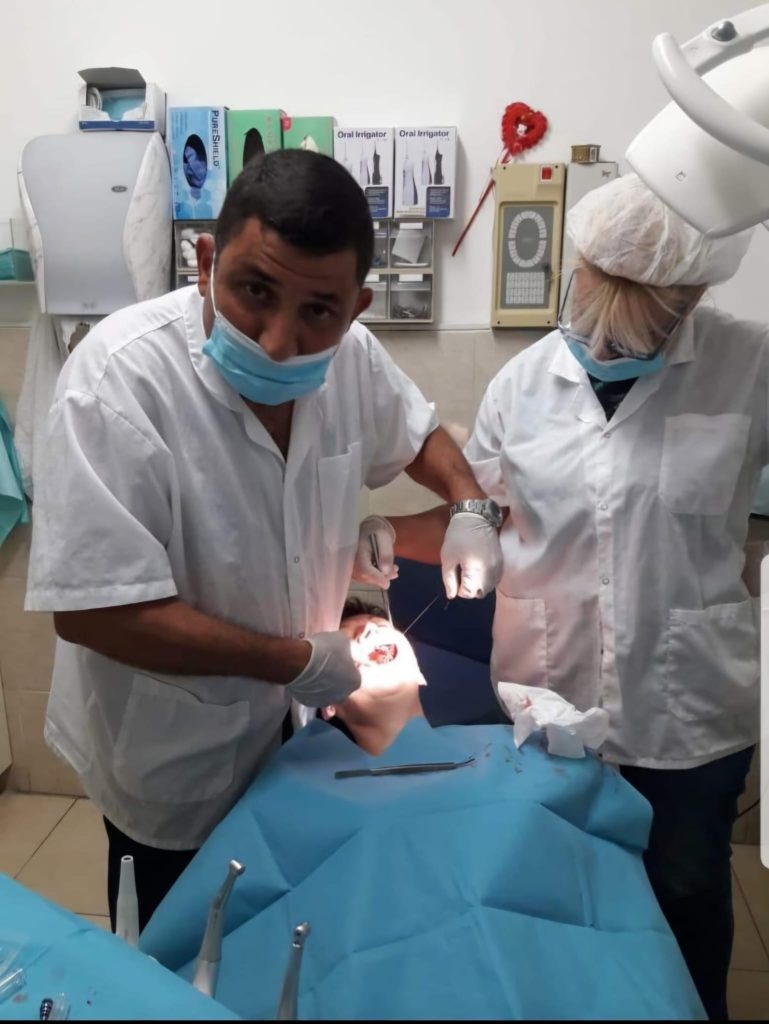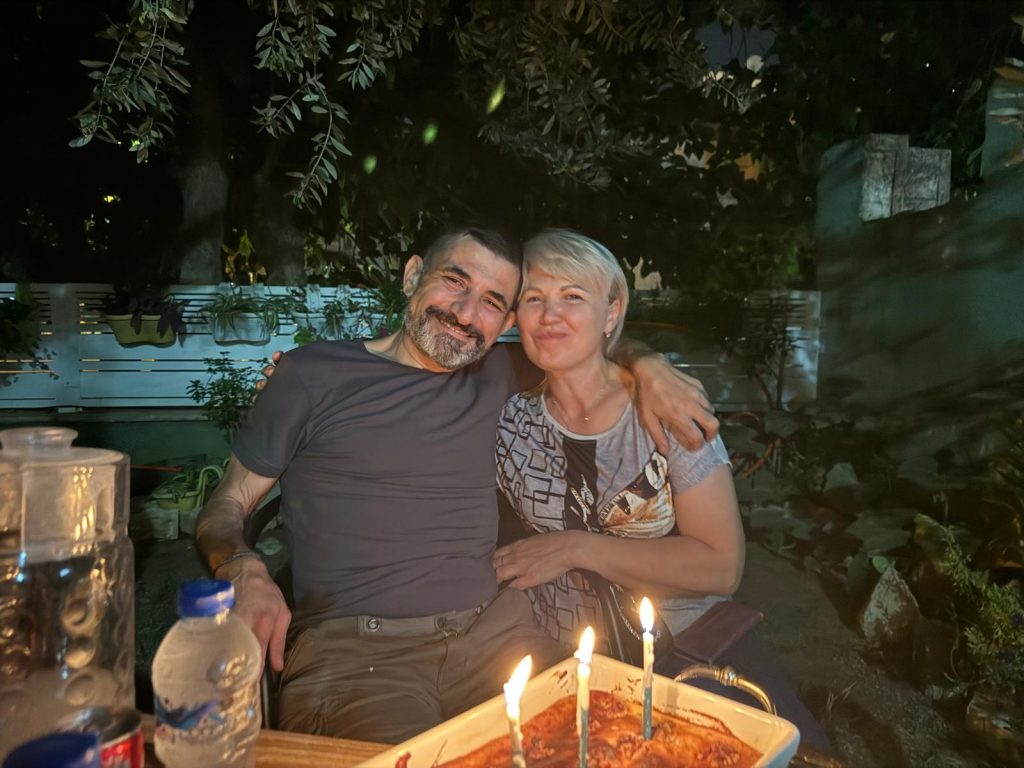
Previous German archeologist: After conversion, St Paul spent time in Jordan

Written by Hind Shraydeh – Special to Milhilard.org
Jerusalem – a state that claims freedom of opinion and expression and boasts of being the only democracy in a region invented by colonialists – has been pursuing a dentist from the city of Lod.
The city that holds the remains of Saint George (Al-Khader), and for whose land landed the first Palestinian Airlines plane.
The Israeli occupation was terrified by the thoughts of Dr. Kamal Saliba Tannous (55 years old) and the convictions with which he was raised and for which he expressed. He was detained under the pretext of having committed the crime of “incitement” on social media sites. They thought that they could suppress his awareness and identity as a Palestinian who did not accept the occupation. Therefore, they decided to punish him with imprisonment so that his punishment would be an example to others. Not only was he jailed for his social media posts, but his punishment also aimed at destroying his professional life by stopping him from practicing the dental profession from which he makes a living.

He was convicted and punished to a full year of detention, but he has finally come out. Dr. Tannous is a witness to the deliberate starvation policy pursued by the Prison Service administration against Palestinian prisoners after October 7. A cursory look at his face after his detention one can completely notice that his features are completely different from what he used to have. Tannous lost thirty kilograms and emerged with a gray-haired beard.
Dr. Tannous’ story began in the year 2020/2021 when he was arrested for a month and a half and held in the Megiddo prison. After that he spent three months in house arrest, followed by the hardship of the unjust Israeli judiciary, which is characterized by “being both the judge and the executioner.” After repeated postponements of courts for months the public and private life of Tannous was suspended. Finally, he was convicted and sentenced to 16 months. After an appeal, it was reduced to 12 months. He was ordered to show up for his jail sentence on July 23rd, 2023. Dr. Tannous spent his prison initially between the Nafha and Negev desert prisons, in southern occupied Palestine.
The systematic escalation against prisoners
Dr. Tannous gave the following testimony to Milhilard.org starting with what happened to him in Nafha prison. “On the seventh of October, we were still able to watch the news available, starting from 8:00 until 11:00 in the morning. We alternated between the Hebrew channels, (Al-Jazeera), and the various local radio stations. We were surprised when the prison administration closed the doors on us, forcefully canceling all the achievements that the prisoner movement had achieved during the previous years, including the right to have televisions and radios. Everything was confiscated to cut us off from the news outside the prison. Confiscation extended to books, shaving tools, even spoons, a “plate,” a heating jug, and clothes, as well as the right to go out to the bathroom and shower. Visits from family/lawyers and other rights that prisoners have obtained were also suspended. “
Dr. Tannous said that in the days and weeks after the prison was becoming overcrowded due to arbitrary movements of prisoners and the addition of new arrests “The prison cell that used to accommodate four prisoners is now crowded with eight, with four prisoners sleeping on the floor.
The restrictions were the product of instructions by the Israeli Minister of National Security Itamar Ben Gvir. , who instructed the implementation of planned revenge policies against all prisoners. This reprisal included systematic torture, such as repeated beatings, assaulting prisoners with the Prison Service’s dogs, and other harsh treatment. Prison officials stopped allowing the distributions inside prisons based on political affiliations, and abolishing what is known as “the Dober.” A representative of the prisoners. They prevented prisoners from cooking their food or buying it from the prison grocery “canteen.”
Instead, they devised a plan to drastically cut back on food for prisoners. The starvation policy began by allocating a loaf of bread for every two prisoners. They also took away prisoners’ clothes which meant an inability to stay warm on the cold nights. Water was cut off and bathing was prevented resulting in skin diseases such as scabies and constant itching. A deliberate medical neglect policy was instituted, in addition to excessive punishment and deprivation of basic medical needs, even the Acamol (aspirin-type)pill, which was the prisoners’ only relief from all diseases, was no longer available.
All of the aforementioned violations were taking place daily, contrary to what is stipulated in international conventions of international humanitarian law, international human rights law, the Fourth Geneva Conventions and their first Additional Protocol of 1977, and international criminal law, especially what was stated in the preamble to the Rome Statute, and Article ( 7) of it, which defines crimes against humanity, and Article (8) regarding war crimes.
For decades, the legal and political struggle revolved around the necessity of recognizing the legal status of Palestinian prisoners and detainees, as prisoners of war and protected civilians fighting for freedom, they must be treated according to the protection assigned to them in the Third and Fourth Geneva Conventions, and other human rights conventions. Israel began to apply arbitrarily new laws, under which it arrests Palestinians in Gaza following a vague decree calling arrested Palestinians “unlawful combatants.”
Arrests in the West Bank were intensified to the degree that prisons were overcrowded. Prison action amounted to stripping political prisoners of all their rights and taking away all the achievements and struggles achieved by the prisoner movement in the past. Thus, “Israel” turned all Palestinian prisoners into mere hostages of the Prison Service, turning their case into a bargaining card and a political blackmailing tool. The prison authorities imposed a fait accompli policy, in which the prison guards can do whatever they want without accountability or supervision. Dr. Tannous confirmed, “that all the prisoners have become hostages of the occupation authorities.”
The Negev…the path of prisoners’ pain
In late November 2023, Dr. Kamal Tanous was transferred along with twenty prisoners to the Negev prison. They were not allowed to bring anything except a thin bed sheet, which could not be called a blanket, to keep warm.
For Dr. Tanous, many calendar days are etched in his memory. On January 15, 2024, prisoners were subject to harsh abuse. Prison guards were particularly focused on section 5 of Castle A, where ten prisoners lived in each room. A week later on January 22, Tannous was moved to Section 22 in Castle C. On his way with the rest of the prisoners, they were all subjected to severe beatings until they reached the section. Regarding the conditions of the rooms, Tannous states, “Water was very scarce, to the point that we had to organize our entry into the bathroom and calculate the water by the drop. But we adapted to that over time.”
Systematic torture: excessive ignition of electricity leading to complete darkness and intentional tinnitus syndrome.
Another method of torture was turning on the electricity with a strong voltage throughout the night, and weeks later, the prisoners were subjected to the exact opposite, as the prisoners suffered from complete darkness, with all the lights being deliberately turned off, which left the prisoners’ rooms in pitch darkness. Light barely entered during the day, immersing prisoners in darkness. The jailers enjoyed controlling the prison loudspeakers raising the volume to eardrum-busting levels as songs were played extremely loud. The loudness of the sound along with recordings of screaming sounds created a disturbance among the prisoners, designed to harass them, not to mention the jamming machines and the deranged whistling that runs through the nervous system like tinnitus, which makes a person scrunch his face and tighten his ears from excessive mental and auditory disturbance.
Dr. Tannous moved on February 11 and nine prisoners to room No. 11 in Section 25 staying there until February 28. During one of the careful inspections, and in the opposite section, Section 27 specifically, the guard found a hidden radio, and he went crazy, and the entire prison erupted and didn’t come down for a while. The doctor says: “The prison administration gathered 60 prisoners from the section above and tortured them in the open. They physically harshly abused them on that day.”
Starvation and self-administration of prisoners
“Despite this oppression, prisoners from several affiliations joined forces to form a self-administration system that would distribute and manage food, despite its extraordinary scarcity. This effort led to a small improvement in the general situation and made everyone feel that the occupation would not prevail against us, that we would not surrender to the reality of the situation but would continue to control our lives and participate in creating our future,” Tannous says.
Ramadan religious chants in a faint voice
During the holy month of Ramadan, Tannous had moved to Fort C, Section 26, where he witnessed the prison administration preventing prisoners from holding their prayer rituals. The Friday sermon was not permitted at all. Rather, prayers were restricted to rooms, and the prisoners said “Allahu Akbar” in a muffled voice, between the regular prayer chants, all in a low voice, amidst severe arbitrary measures of torture. Not only Ramadan, but Easter, passed for Tannous in the same way with prisoners not allowed to participate in their own religious events. The situation continued this way until May 12, when he was transferred with the rest of the prisoners of his section and replaced with Section 25 again. The jailer did not miss the transfer opportunity without insulting and beating the prisoners. The new status quo became the practice of transferring prisoners between sections with a heavy dose of beatings and abuse. As a result, Tannous was subjected, based on the number of transfers in the Negev alone, to seven large events of beating and abuse. This continued until his release and the ability to walk on the asphalt on May 31, 2024.
Dr. Tanous says that the aforementioned included the last two beating parties that occurred to him alone on his last night in prison. Tannous says: “On my last day, I was subjected to a severe beating from the guards of Al-Shabas, which is the prison service unit. One of them intended to hit me with a metal inspection machine on my testicles, and then he lifted me up, with my hands tied behind my back, my legs, and blindfolded, until he beat me.” My head was on the ground. Then the beating continued again by the “Keter” unit, which is responsible for transporting prisoners.”
Effects of detention: malnutrition, and chronic constipation
Tannous revealed that after he was released, he had a medical examination, and the x-ray showed a fracture in the rib cage which he suffered from. I feel the pain in my chest every time I get up or lie down in bed. It also turned out that I have a hernia caused by muscle contraction due to lack of food and malnutrition. Dry eating also caused difficult and chronic constipation.” He continues: “But my condition cannot be compared with the conditions of other prisoners to whom worse things happened than that.”
Freedom

In his city: Lod, among his family and people, surrounded by his wife Layal, three children (Jamil, 28 years old, Nidal, 25 years old, and Nasser, 22 years old); Tannous returned home again. Having lost thirty kilograms, but gaining “more patience,” as he put it, and a lot of fortitude and hope for a better tomorrow. He looks at his dental certificate hanging on the wall which he cannot return to due to an arbitrary Israeli decision that interfered with the core of his personal and professional life. Tannous says: “I will have to wait two years according to the unjust decision, but I will get my job back, and I will move on.”


تكافح مجلة “ملح الأرض” من أجل الاستمرار في نشر تقارير تعرض أحوال المسيحيين العرب في الأردن وفلسطين ومناطق الجليل، ونحرص على تقديم مواضيع تزوّد قراءنا بمعلومات مفيدة لهم ، بالاعتماد على مصادر موثوقة، كما تركّز معظم اهتمامها على البحث عن التحديات التي تواجه المكون المسيحي في بلادنا، لنبقى كما نحن دائماً صوت مسيحي وطني حر يحترم رجال الدين وكنائسنا ولكن يرفض احتكار الحقيقة ويبحث عنها تماشيًا مع قول السيد المسيح و تعرفون الحق والحق يحرركم
من مبادئنا حرية التعبير للعلمانيين بصورة تكميلية لرأي الإكليروس الذي نحترمه. كما نؤيد بدون خجل الدعوة الكتابية للمساواة في أمور هامة مثل الإرث للمسيحيين وأهمية التوعية وتقديم النصح للمقبلين على الزواج وندعم العمل الاجتماعي ونشطاء المجتمع المدني المسيحيين و نحاول أن نسلط الضوء على قصص النجاح غير ناسيين من هم بحاجة للمساعدة الإنسانية والصحية والنفسية وغيرها.
والسبيل الوحيد للخروج من هذا الوضع هو بالتواصل والنقاش الحر، حول هويّاتنا وحول التغييرات التي نريدها في مجتمعاتنا، من أجل أن نفهم بشكل أفضل القوى التي تؤثّر في مجتمعاتنا،.
تستمر ملح الأرض في تشكيل مساحة افتراضية تُطرح فيها الأفكار بحرّية لتشكل ملاذاً مؤقتاً لنا بينما تبقى المساحات الحقيقية في ساحاتنا وشوارعنا بعيدة المنال.
كل مساهماتكم تُدفع لكتّابنا، وهم شباب وشابات يتحدّون المخاطر ليرووا قصصنا.